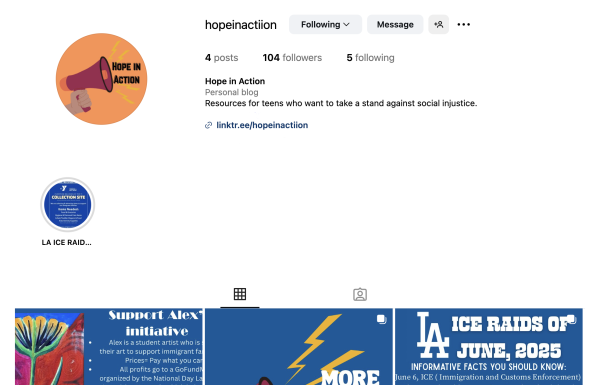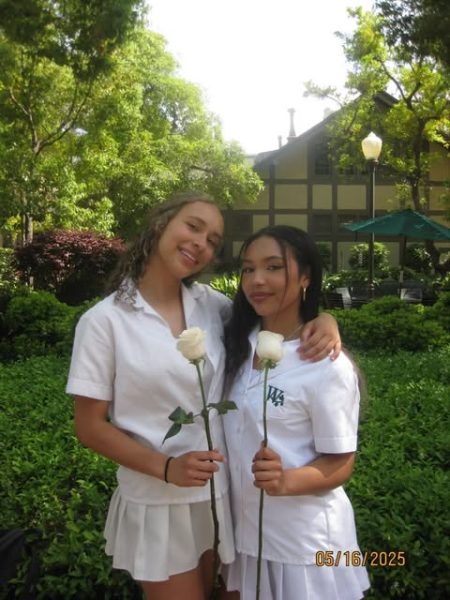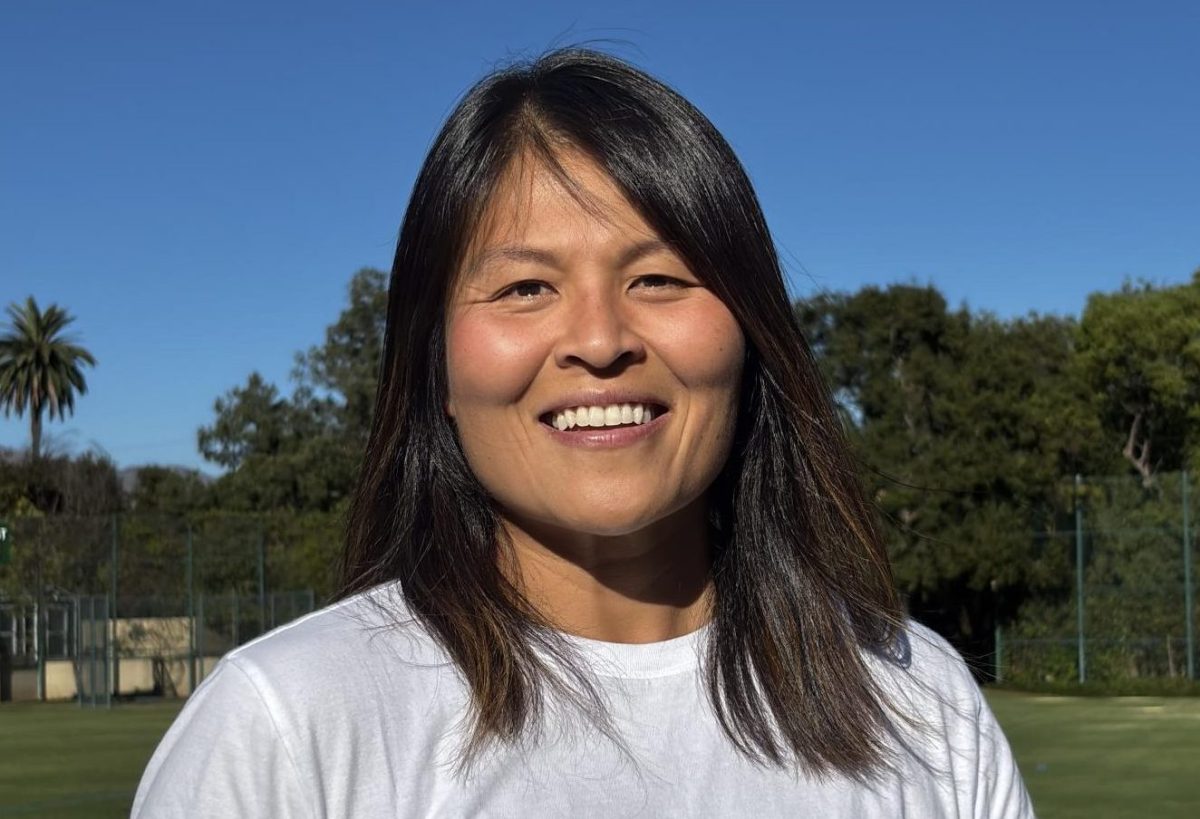Throughout the summer of 2025, immigrant communities across Los Angeles have been living in fear as President Donald Trump has significantly increased ICE (U.S. Immigration and Customs Enforcement) presence in the area. ICE was originally created to enforce immigration laws by detaining, deporting, and/or convicting undocumented immigrants in the United States. While President Trump has claimed that ICE is primarily detaining immigrants with criminal records, according to recent statistics, immigrants with no criminal record make up 70.8% of the over 58,766 detainees in the US.
In addition, ICE has been accused of abusing their power and denying immigrants’ constitutional rights, leading some to be imprisoned or deported with little to no explanation or warning to family and friends. ICE has also been accused of using excessive force, profiling, and restricting the rights of due process towards detainees. For example, ICE has detained numerous working class immigrants from Home Depot Parking lots across LA.
In response, thousands of people took to the streets to protest ICE in early June, which led to the deployment of over 1700 members of the National Guard in an attempt to quell protests.
After hearing about ICE’s presence in LA, Westridge seniors Esperanza O.-C. and Lucia F.-R. checked in on each other over text. Both were emotionally overwhelmed by the amount of suffering LA’s immigrant communities were facing and decided that they wanted to find a way to empower teenagers like them who felt helpless in such times of crisis.
The string of texts soon turned into an Instagram account named “Hope in Action,” a resource for people who want to help immigrants. “When the ICE raids were going down in LA, we started thinking, ‘We need to find a way to place this anger into helping cultivate change.’ So we decided to find ways to empower other teenagers like us, who might feel helpless during these times to help out in any way they can,” said Lucia.
Hope in Action, which has gained over 100 followers since its launch in June, has a variety of links leading to volunteer opportunities, petitions, fundraisers, immigrant-owned small businesses, and links to print out red cards—cards that have instructions on what to do when in a situation with an immigration officer that comes in multiple languages, including Spanish and Chinese.

Lucia and Esperanza’s idea stemmed from their growing interest in civic engagement. Lucia’s interest in public engagement started during quarantine, and she continues to update herself on current events. “Knowing [about] what’s happening now and this increasing pain and struggle, it really motivates me to go and help out in any way I can,” she said.
Both Esperanza and Lucia have family and friends who immigrated to the United States, so they know first-hand about the struggles facing immigrants. Esperanza felt that spreading opportunities for change didn’t feel like a choice but rather a duty she must fulfill for the people close to her. “I feel like I have to do this for them in a way, even though, of course, it affects so many other people,” she said.
Esperanza and Lucia wanted to create the account to make the transition between wanting to help out immigrants to actually going out to volunteer a smoother and simpler process. “[The account] gives direct connections to places you can go and volunteer and to places you can donate too,” Esperanza said. “So I think that giving those direct links to how you can help directly helps Westridge, and it helps other private schools, and it helps the students in general.”
Now that school has started, the pair started a club continuing their work that they have started with the account to keep Westridge students engaged with issues regarding immigration.

Many people, especially younger people, which is the target audience for Hope in Action, often fall into the trap of performative activism. Performative activism includes posting on social media and demonstrating inauthentic support for a specific cause. Their intentions for posting such things are usually to increase one’s social capital rather than actually wanting to create positive change for a cause. “Knowing our generation right now, certain people are very restricted and focus more on social media being a way to portray themselves in a picture perfect way,” said Lucia. “And they kind of ignore everything else that’s happening [right now].”
Despite feelings of disappointment in their generation, running the account has instilled hope in Lucia and Esperanza. The extent of their reach within their community has surprised them. Esperanza says, “Seeing people follow [the account] who I haven’t connected with for a long time gave me a lot of hope. I realized that everybody wants to help, and everybody’s affected by this.”




























![Dr. Zanita Kelly, Director of Lower and Middle School, pictured above, and the rest of Westridge Administration were instrumental to providing Westridge faculty and staff the support they needed after the Eaton fire. "[Teachers] are part of the community," said Dr. Kelly. "Just like our families and students."](https://westridgespyglass.org/wp-content/uploads/2025/03/dr.-kellyyy-1-e1748143600809.png)
























